We should remember Stolen! as a significant expression in the Dogon
myth of how fire was brought down from the 'sky' to the 'earth'
... Considering the fact that the crossroads
of ecliptic and Galaxy are crisis-resistant, that is, not
concerned with the Precession, the reader may want to know why
the Mangaians thought they could go to heaven only on the two
solstitial days. Because, in order to 'change trains'
comfortably, the constellations that serve as 'gates' to the
Milky Way must 'stand' upon the 'earth', meaning that they must
rise heliacally either at the equinoxes or at the solstices. The
Galaxy is a very broad highway, but even so there must have been
some bitter millenia when neither gate was directly available
any longer, the one hanging in midair, the other having turned
into a submarine entrance ...

- viz. it had to be
stolen:
... All was now ready for departure except
that there was no fire in the smithy. The ancestor slipped into
the workshop of the great Nummo, who are Heaven's smiths, and
stole a piece of the sun in the form of live embers and
white-hot iron. He seized it by means of a 'robber's stick' the
crook of which ended in a slit, open like a mouth.
He dropped some of the embers, came back to
pick them up, and fled towards the granary; but his agitation
was such that he could no longer find the entrances. He made the
round of it several times before he found the steps and climbed
onto the flat roof, where he hid the stolen goods in one of the
skins of the bellows, exclaiming: 'Gouyo!', which is to
say. 'Stolen!'. The word is still part of the language, and
means 'granary'. It is a reminder that without the fire of the
smithy and the iron of hoes there would be no crops to store
...
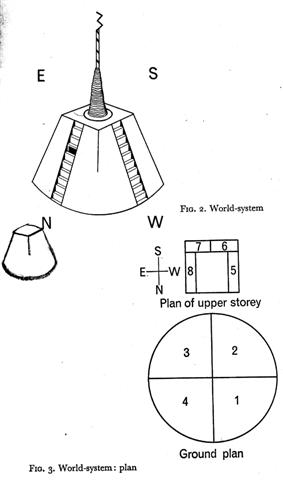
... The jaguar learned from the grasshopper
that the toad and the rabbit had stolen its fire while it was
out hunting, and that they had taken it across the river. While
the jaguar was weeping at this, an anteater came along, and the
jaguar suggested that they should have an excretory competition.
The anteater, however, appropriated the excrement containing raw
meat and made the jaguar believe that its own excretions
consisted entirely of ants. In order to even things out, the
jaguar invited the anteater to a juggling contest, using their
eyes removed from the sockets: the anteater's eyes fell back
into place, but the jaguar's remained hanging at the top of a
tree, and so it became blind. At the request of the anteater,
the macuco bird made the jaguar new eyes out of water, and these
allowed it to see in the dark. Since that time the jaguar only
goes out at night. Having lost fire, it eats meat raw. It never
attacks the macuco ...'
... A man had a daughter who possessed a wonderful bow and
arrow, with which she was able to bring down everything she
wanted. But she was lazy and was constantly sleeping. At this
her father was angry and said: 'Do not be always sleeping, but
take thy bow and shoot at the navel of the ocean, so that we may
get fire.' The navel of the ocean was a vast whirlpool in which
sticks for making fire by friction were drifting about. At that
time men were still without fire. Now the maiden seized her bow,
shot into the navel of the ocean, and the material for
fire-rubbing sprang ashore. Then the old man was glad. He
kindled a large fire, and as he wanted to keep it to himself, he
built a house with a door which snapped up and down like jaws
and killed everybody that wanted to get in. But the people knew
that he was in possession of fire, and the stag determined to
steal it for them. He took resinous wood, split it and stuck the
splinters in his hair. Then he lashed two boats together,
covered them with planks, danced and sang on them, and so he
came to the old man's house. He sang: 'O, I go and will fetch
the fire.' The old man's daughter heard him singing, and said to
her father: 'O, let the stranger come into the house; he sings
and dances so beautifully.' The stag landed and drew near the
door, singing and dancing, and at the same time sprang to the
door and made as if he wanted to enter the house. Then the door
snapped to, without however touching him. But while it was again
opening, he sprang quickly into the house. Here he seated
himself at the fire, as if he wanted to dry himself, and
continued singing. At the same time he let his head bend forward
over the fire, so that he became quite sooty, and at last the
splinters in his hair took fire. Then he sprang out, ran off and
brought the fire to the people ...
Similarly Teke and his companion oti were out in the night
stealing - but this pair were out in order to (had been ordered
to)
gather
roots:
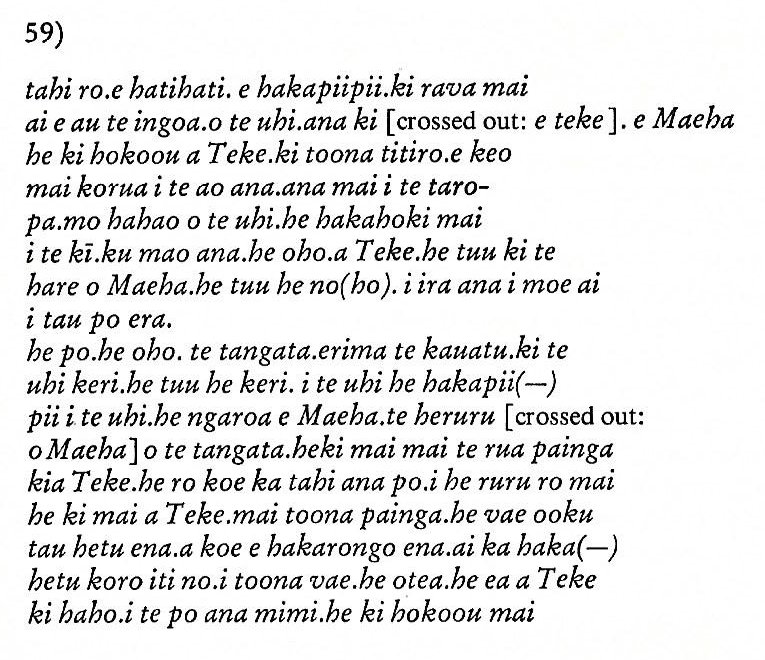
|
he oho.a Teke.raua ko
oti.ko toraua titiro |
Teke, Oti, and
their assistants [toraua titiro] went on. Teke
secretly told [he nave] his assistants, 'Later during the night
you are to go (there) and dig up the yams of my
(classificatory) brother (tangata taina) Maeha.
When you have dug out all the big and small roots, so
that nothing is left in the soil (? ka paepae tahiro), |
|
tokoa, he nave e Teke.ki
toona titiro.ani(-) |
|
ra.i te po.e oho korua e
tuu. e keri i te |
|
uh(i) era o tooku tangata
taina era.a Maeha |
|
ana keri korua rua nui rua
iti ka paepae. |
|
Pae 1. To end,
to come to an end; ku-pae-á taaku kai, I have no
more food; pae-atu, to leave en masse;
ku-pae-atu-á tagata ki Hangaroa tai. everybody has
left for Hangaroa Bay. 2. To start, to break out
(of wars, fights: taûa); ku-pae-á te taûa,
the fight, the war, has started. 3. Dressed, edged
stones anciently used to enclose a permanent umu;
paepae wall of undressed stones built as
protection against the wind; also any other protection.
Pa'e: Of a boat, to deviate, to drift, to stray
under the effects of currents or winds; ku-pa'e-á te
vaka i te tokerau, the wind has made the boat
deviate from its course. Vanaga. Paega: 1.
Dressed stones forming the foundations of the ancient
houses or of the walls of the monumental ahus;
hare paega, house with stone foundations;
paega-ahu, ahu wall. 2. Household, people who live
in a hare paega. 3. To lay stones on the bottom
and against the sides of a hole: he-paega i te rua.
Vanaga. Pae.
1. Enough. 2. Division of a subject (paiga).
Pau.: paega, a party, a side. Ta.: pae,
division, part. 3. Threshold, sill, joist. P Ta.: pae,
sill, joist. 4. To exhaust, to finish, past; e ko pae,
impregnable; hakapae, to exhaust, to finish, to
end, to execute, to accomplish, to conclude, to
consummate, to consume, to achieve, to acquit. Paea:
1. Enough, past. 2. To decay, to waste away; paea
tooa, to deprive. Paega, foundation.
Paepae, pavement, plank, canoe; hakapaepae,
to lay planks, to floor. P Pau.: paepae, a raft.
Mgv.: paepae, a pavement, to lay up stones with
regularity into a wall. Mq.: paepae, elevated
pavement on which the house is built. Ta.: paepae,
pavement, raft. Paero, all, totalit, to sweep off
all. Churchill.
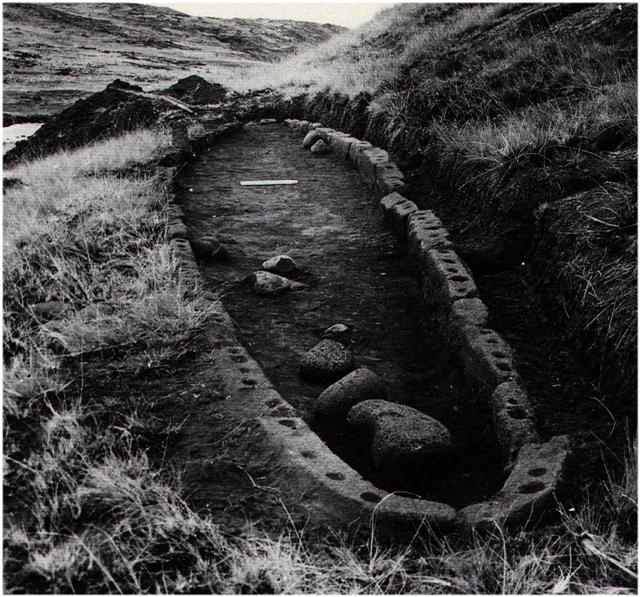
... It is certainly true that the
exterior form of the hare paenga, when the
superstructure and thatch are intact, resembles an
overturned boat, with the form established by the
foundation. However, it is equally true (and perhaps
equally important) that the configuration of the
foundation is otherwise most like the Rapa Nui
vulva design called komari.
The komari is the
quintessential female symbol which is everywhere
prominent in Rapa Nui art, often carved in rock
and wood, incised on human crania, and painted on the
human body. In the hare paenga foundation form,
the komari is cut in stone and embedded in the
earth, the cosmologically female realm. Spanning above,
over and virtually into this komari foundation is
the ridgepole 'backbone' and curved rafter 'ribs' of
what I surmise to be a symbolically male form. In short,
we have a shelter which may be metaphorically understood
as 'the sky father enclosing his progeny as he embraces
the earth'. Those progeny entered and departed this
male/female, earth/sky form through a low, dark tunnel
which may be logically compared to the birth canal. This
postulated symbolism does not, of course, negate the
'overturned boat' comparison, since Polynesian canoes
were often likened to the bodies of great ancestors or
to Tane as First Man. The canoe which transported
the first exploratory voyage to Rapa Nui was said
to have been called The Living Wood, a reference to
Tane. Indeed, it is likely that the 'overturned
boat' concept and its relationship to home, hearth and
lineage, which is so graphically visible, was commonly
understood (hence its retention in the oral literature),
while the more esoteric godly connections, perhaps along
the lines of those explored here, were known only by
spiritual leaders ...
 |
|
E:59 |
|
tahi ro.e
hatihati. e
hakapiipii.ki rava mai |
then you shall
break them up completely and rub the pieces in your
hands. This way, when Maeha names them, I can find out the
names of the various kinds of yams.' [te ingoa.o te
uhi] |
|
ai e au te ingoa.o te
uhi.ana ki (crossed out:
e teke).
e Maeha |
|
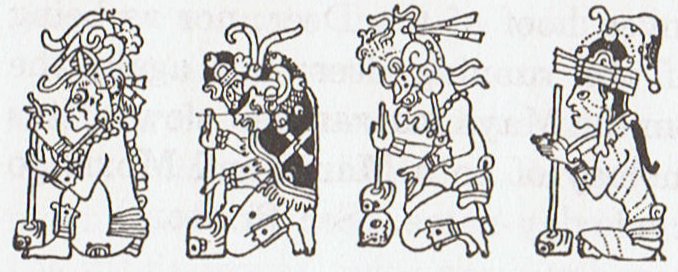 |
|
he ki hokoou a Teke.ki
toona titiro.e keo |
Then Teke said
to his assistants, 'Work quickly until late at night (?
or 'until it gets light', ite ao ana), |
|
mai korua i te ao ana.ana
mai i te taro- |
| Hati 1.
To break (v.t., v.i.); figuratively: he hati te pou
oka, to die, of a hopu manu in the exercise
of his office (en route from Motu Nui to
Orongo). 2. Closing word of certain songs. Vanaga.
Hahati. 1. To break (see hati). 2. Roughly
treated, broken (from physical exertion: ku hahati á
te hakari) 3. To take to the sea: he hahati te
vaka. Vanaga. Ha(ha)ti. To strike, to break,
to peel off bark; slip, cutting, breaking, flow, wave (aati,
ati, hahati); tai hati, breakers,
surf; tumu hatihati, weak in the legs;
hakahati, to persuade; hatipu, slate. P Pau.:
fati, to break. Mgv.: ati, hati, to
break, to smash. Mq.: fati, hati, id. Ta.:
fati, to rupture, to break, to conquer.
Churchill. HAKI, v. Haw., also ha'i
and ha'e, primary meaning to break open,
separate, as the lips about to speak, to break, as a
bone or other brittle thing, to break off, to stop,
tear, rend, to speak, tell, bark as a dog; hahai,
to break away, follow, pursue, chase; hai, a
broken place, a joint; hakina, a portion, part;
ha'ina, saying; hae, something torn, as a
piece of kapa or cloth, a flog, ensign. Sam.,
fati, to break, break off; fa'i, to break
off, pluck off, as a leaf, wrench off; fai, to
say, speak, abuse, deride; sae, to tear off,
rend; ma-sae, torn. Tah., fati, to break,
break up, broken; fai, confess, reveal, deceive;
faifai, to gather or pick fruit; haea,
torn, rent; s. deceit, duplicity; hae-hae,
tear anything, break an agreement; hahae, id.
Tong., fati, break, rend. Marqu., fati,
fe-fati, to break, tear, rend; fai, to tell,
confess; fefai, to dispute. The same double
meaning of 'to break' and 'to say' is found in the New
Zealand and other Polynesian dialects.
Malg., hai, haïk, voice, address,
call. Lat., seco, cut off, cleave, divide;
securis, hatchet; segmentum, cutting,
division, fragment; seculum (sc. temporis),
sector, follow eagerly, chase, pursue; sequor,
follow; sica, a dagger; sicilis, id., a
knife; saga, sagus, a fortune-teller.
Greek, άγνυμι,
break, snap, shiver, from Ѓαγ
(Liddell and Scott); άγν, breakage,
fragment; έκας,
adv, far off, far away. Liddell and Scott consider
έκας akin to
έκαςτος, each,
every, 'in the sense of apart, by itself', and they
refer to the analysis of Curtius ... comparing Sanskrit
kas,
kâ,
kat (quis,
qua,
quid), who of
two, of many, &c. Doubtless
έκας and
έκαςτος are akin 'in the sense of apart, by
itself', but that sense arises from the previous sense
of separating, cutting off, breaking off, and thus more
naturally connects itself with the Latin
sec-o,
sac-er, and
that family of words and ideas, than with such a forced
compound as είς and
κας. Sanskr., sach, to follow. Zend,
hach, id. (Vid. Haug, 'Essay on Parsis'.) I
am well aware that most, perhaps all, prominent
philologists of the present time - 'whose shoe-strings I
am not worthy to unlace' - refer the Latin
sequor,
secus, even
sacer, and
the Greek έπω,
έπομαι, to this Sanskrit sach. Benfey even
refers the Greek έκας to this sach, as
explanatory of its origin and meaning. But, under
correction, and even without the Polynesian congeners, I
should hold that sach, 'to follow', in order to
be a relative to sacer, doubtless originally
meaning 'set apart', then 'devoted, holy', and of
έκας, 'far off', doubtless originally meaning
something 'separated', 'cut off from, apart from', must
also originally have had a meaning of 'to be separated
from, apart from', and then derivatively 'to come after,
to follow'. The sense of 'to follow' implies the sense
of 'to be apart from, to come after', something
preceding. The links of this connection in sense are
lost in Sanskrit, but still survive in the Polynesian
haki, fati, and its contracted form hai,
fai, hahai, as shown above. I am therefore
inclined to rank the Latin sequor as a derivative of
seco, 'to cut off, take off'. Welsh, haciaw,
to hack; hag, a gash, cut; segur, apart,
separate; segru, to put apart; hoc, a
bill-hook; hicel, id. A.-Sax., saga, a
saw; seax, knife; haccan, to cut, hack;
sægan, to saw; saga, speech, story; secan,
to seek. Anc. Germ., seh, sech, a
ploughshare. Perhaps the Goth. hakul, A.-Sax.
hacele, a cloak, ultimately refer themselves to the
Polynes. hae, a piece of cloth, a flag. Anc.
Slav., sieshti (siekā), to cut; siekyra,
hatchet. Judge Andrews in his Hawaiian-English
Dictionary observes the connection in Hawaiian ideas
between 'speaking, declaring', and 'breaking'. The
primary idea, which probably underlies both, is found in
the Hawaiian 'to open, to separate, as the lips in
speaking or about to speak'; and it will be observed
that the same development in two directions shows itself
in all the Polynesian diaclects, as well as in several
of the West Aryan dialects also. Fornander.
Piki. To climb,
to mount, to go up; piki aruga, to surpass;
pikipiki, to embark, to go aboard; hakapiki,
to climb. P Pau.: piki, to climb, to ascend, to
mount. Mgv.: piki, to mount, to go up, to climb.
Mq.: piki, pií, to mount, to climb, to go
aloft. Ta.: pii, to mount. Pikiga, ascent,
steps, stairs; Mgv.: pikiga, a stair, ladder,
step. Pikipiki: rauoho pikipiki,
black hair and curly. P Pau.: tupikipiki, to
curl, to frizzle. Churchill. Pau.: pikiafare,
cat. Ta.: piiafare, id. Churchill. PI'I,
v. Haw., to strike upon or extend, as the shadow
on the ground or on a wall; to ascend, go up. N. Zeal.,
piki, to ascend. Sam.: pi'i, to cling to
to climb. Marqu., piki, to climb, ascend;
piki-a, steps, acclivity. Tong., piki, to
adhere to, to climb, ascend. Fiji., bici-bici, a
peculiar kind of marking on native cloth.Sanskr.,
pin'j, to dye or colour; pin'jara, yellow,
tawny. Lat., pingo, to paint, represent,
embroider. The marking out or tracing a shadow on the
ground or on a wall was probably the primary attempt at
painting. In the Hawaiian alone the sense of an ascent,
compared to the lengthening of the shadows, has been
retained. As the sun descended the shadows were thought
to ascend or creep up the mountain-side. The sense of
'marking, tracing', seems only to have been retained in
the Fijian, where so much other archaic Polynesian lore
has been retained, and thus brings this word in
connection with the Sanskrit and Latin. Fornander.
Pi. Mgv.:
pi, full, complete.
Mq.: pi, id.
Churchill. Ta.:
pi, young,
green. Ma.: pipi,
half-grown, not matured. Churchill. PI,
v. Haw., to sprinkle, as water; to throw water with
the hand; pi-pi, ka-pi, id. Sam., pi,
to splash, slap, as a fish in a trap; ta-pi,
rinse with fresh water; pisi, to splash with
water. Tah., pi-pi, sprinkle with water. Sanskr.,
pi = pâ, to drink; piv, id.;
pinu, to sprinkle; pitha, a drink, water;
pipâsâ, thirst. Greek, πινω, to drink;
πιστρα, a drinking trough, drink, water; πιπισκω,
give to drink; πωμα,
drink, liquor, &c. Lat., bibo,
to drink; bibulus,
potus. Slav.,
pi,
piti,
pivati, to drink.The
transition from the sense conveyed in the Polynesian to
that in the West Aryan tongues will be intelligible to
those who have observed the manner of drinking which
probably obtained before cups or containers were used,
and which is still very common among the Polynesians
when travelling; it is by 'throwing the water with the
hand' from the spring or river to the mouth. That
primary sense seems to have survived in the Sanskrit
pinu, to
sprinkle. Fornander.... in
the ceremonial course of the coming year, the king is
symbolically transposed toward the Lono pole of
Hawaiian divinity ... It need only be noticed that the
renewal of kingship at the climax of the Makahiki
coincides with the rebirth of nature. For in the ideal
ritual calendar, the kali'i battle follows the
autumnal appearance of the Pleiades, by thirty-three
days - thus precisely, in the late eighteenth century,
21 December, the winter solstice. The king returns to
power with the sun. Whereas, over the next two days,
Lono plays the part of the sacrifice. The
Makahiki effigy is dismantled and hidden away in a
rite watched over by the king's 'living god',
Kahoali'i or 'The-Companion-of-the-King', the one
who is also known as 'Death-is-Near' (Koke-na-make).
Close kinsman of the king as his ceremonial double,
Kahoali'i swallows the eye of the victim in
ceremonies of human sacrifice ... In the deep night
before the image [of Lono] is first seen, there
is a Makahiki ceremony called 'splashing-water' (hi'uwai). Kepelino
tells of sacred chiefs being carried to the water where
the people in their finery are bathing; in the
excitement created by the beauty of their attire, 'one
person was attracted to another, and the result', says
this convert to Catholicism, 'was by no means good'. At
dawn, when the people emerged from their amorous sport,
there standing on the beach was the image of Lono. White
tapa cloth and skins of the ka'upu bird
hang from the horizontal bar of the tall crosspiece
image. The ka'upu is almost certainly the
albatross, a migratory bird that appears in the western
Hawaiian chain - the white Lanyon albatross at
Ni'ihau Island - to breed and lay eggs in
October-November, or the beginning of the Makahiki
season ...
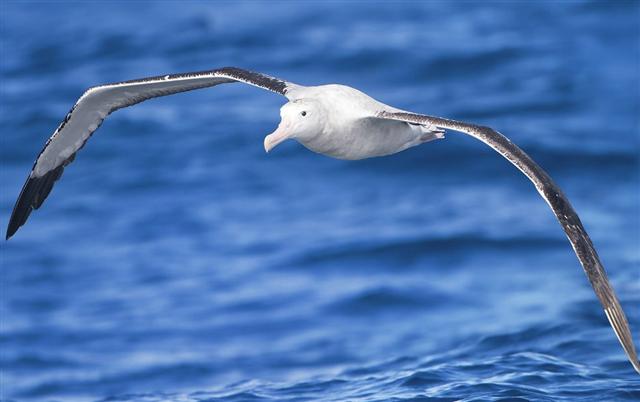 |
|
pa.mo hahao o te uhi.he
hakahoki mai |
when you shall
take the baskets and fill them up with yams.' To this
they replied, 'Agreed.' |
|
i te kī.ku mao ana.he oho.a
Teke.he tuu ki te |
|
... As has already been mentioned, the Delphians
worshipped Dionysus once a year as the new-born child,
Liknites, 'the Child in the Harvest Basket',
which was a shovel-shaped basket of rush and osier used
as a harvest basket, a cradle, a manger, and a
winnowing-fan for tossing the grain up into the air
against the wind, to separate it from the chaff. The
worship of the Divine Child was established in Minoan
Crete, its most famous early home in Europe. In 1903, on
the site of the temple of Dictaean Zeues - the Zeus who
was yearly born in Rhea's cave at Dicte near Cnossos,
where Pythagoras spent 'thrice nine hallowed days' [27]
of his initiation - was found a Greek hymn which seems
to preserve the original Minoan formula in which the
gypsum- [white-] powdered, sword-dancing Curetes, or
tutors, saluted the Child at his birthday feast. In it
he is hailed as 'the Cronian one' who comes yearly to
Dicte mounted on a sow and escorted by a spirit-throng,
and begged for peace and plenty as a reward for their
joyful leaps ... |
|
hare o
Maeha.he tuu
he
no(ho). i ira ana i moe ai |
Teke went away
and came to the house of Maeha [he tuu ki te hare o
Maeha]. There he lay down (?) as though he were
going to sleep that night. |
|
i tau po era. |
| Ma'eha.
Brightness, bright, to lighten, to brighten up; ku
ma'eha-á, it has already lightened up. Vanaga. 1.
Light, brightness; to shine, to be bright, to glimmer,
to glow; maeha mahina, moonshine; maeharaa,
sunrise. Maehamaeha, bright. Hakamaeha, to
brighten. Mq.: maeoeo, bright, transparent. 2. To
get out of the way. 3. Thin, slender, slight. Churchill.
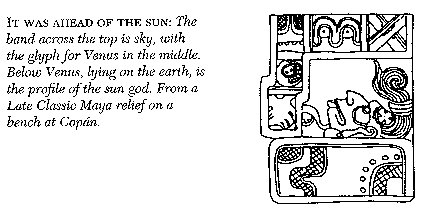
Noi. To
bend down toward the ground, to bow down, to worship.
Hakanoi, to prostrate oneself. Ta.: Noinoi,
small, fine. Mq.: noi, a dwarf, of slow growth.
Ha.: noinoi, small, as a dwarf. Churchill. |
|
he po.he oho. te
tangata.erima te kauatu.ki te |
It grew dark [he
po], and fifty men came to dig up the yams [ki te
uhi keri]. They
arrived [he tuu), dug out [he keri] the
yam roots, and rubbed small pieces of them between their
hands [hakapiipii →
Tah., pi-pi, sprinkle with water] ... |
|
uhi keri.he tuu he
keri. i
te uhi hakapii(-) |
| Keri.
To dig, to grub up, to root up, to excavate, to mine;
rubbish; the wake of a ship; to sow (kekeri).
Kerikeri, to scratch. Keriga, excavation.
Kerihaga oone, farmer. P Pau.: keri,
to dig. Mgv.: keri, to dig, to scrape. Mq.:
kei, to dig, to spade up, to excavate, to work the
soil. Ta.: eri, to mine. The manner of digging
underlies the sense of this word; the digging implement
is a sharpened stick (oka) driven into the earth
by arm power and then used as a lever to loosen the
mold. Churchill. ... Then the canoe
was made to drink salt water; it was dipped forwards and
backwards in the waves of the great moving altar of the
gods and thus consecrated to Tane. A marae
was made for him in the little house aft of the deck,
and the three masts were rigged with ropes and strong
mats for sails and long tapa pennants streaming
from them ...
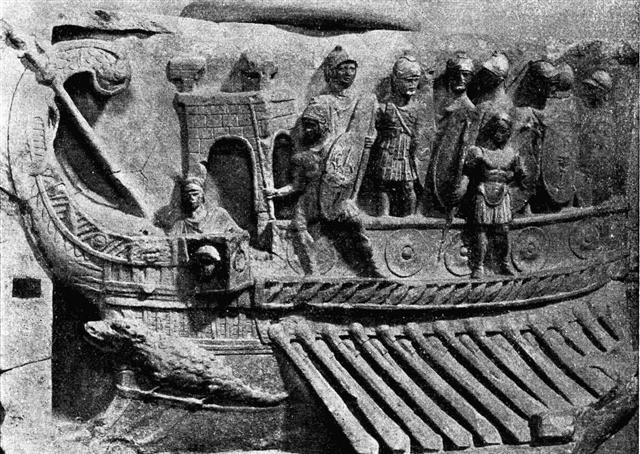 |
|
pii i te uhi.he ngaroa e
Maeha.te heruru (crossed out: |
Maeha heard
something, namely the noise that the men made, and he
said [he-ki mai mai te rua painga] from the other side (of the house) to Teke, 'Hey
you! This is the first time that such a noise has been
heard at night.' [he ki mai a Teke] Teke answered from his side (of the
house) [mai toona painga], 'My feet have made the noise that you heard.' [he
vae ooku tau hetu ena.a koe hakarongo ena] And he very carefully [koro iti] made a noise
[hakahetu] with his feet [i toona vae]. |
|
o Maeha) o te
tangata.heki mai mai te rua painga |
|
kia Teke.he ro koe ka tahi
ana po.i he ruru ro mai |
|
he ki mai a Teke.mai toona
painga.he vae ooku |
|
tau hetu ena.a koe e
hakarongo ena.ai ka haka(-) |
|
Ru. A chill, to
shiver, to shudder, to quake; manava ru, groan.
Ruru, fever, chill, to shiver, to shake, to
tremble, to quiver, to vibrate, commotion, to apprehend,
moved, to agitate, to strike the water, to print;
manava ruru, alarm; rima ruru, to shake
hands. P Pau.: ruru, to shake, to tremble. Mgv.:
ru, to shiver with cold, to shake with fever, to
tremble. Mq.: ú, to tremble, to quiver. Ta.:
ruru, to tremble. Churchill. Mgv.: eager, in haste,
impatient. Ta.: ru, impatience, haste. Churchill.
Ruru, to tremble, an earthquake. Sa.: lūlū,
lue, to
shake. To.: luelue,
to roll; lulu,
to shake. Fu.: lulū,
to tremble, to shake, to agitate. Niuē: luelue,
to shake; lūlū,
to shake, to be shaken. Nuguria: ruhe,
motion of the hands in dancing; luhe henua,
an earthquake. Uvea, Ha.: lu,
lulu,
lululu, to shake, to
tremble, to flap. Fotuna: no-ruruia,
to shake. Ma.: ru,
ruru, to
shake, an earthquake. Ta., Rarotonga, Rapanui, Pau.:
ruru, to
shake, to tremble. Mgv.: ru,
to tremble; ruru,
to shake. Mq.: uu,
to shake the head in negation; uuuu,
to shake up. Uvea: ue i,
to shake; ueue,
to move. Rapanui: ueue,
to shake. Churchill 2.
... When this tremendous task had been accomplished
Atea took a third husband, Fa'a-hotu, Make
Fruitful. Then occurred a curious event. Whether Atea
had wearied of bringing forth offspring we are not told,
but certain it is that Atea and her husband
Fa'a-hotu exchanged sexes. Then the [male] eyes of
Atea glanced down at those of his wife Hotu
and they begat Ru. It was this Ru who
explored the whole earth and divided it into north,
south, east, and west ...
Paina.
Human likeness, large doll (made in ancient times).
Vanaga. T. To make a noise. H. To sound, as in breaking
or tearing anything. Churchill. - ... Der Cultus bestand
in Anrufung der Götter, deren Willen der Priester
erklärte, in Opfern an Lebensmitteln, auch an Menschen,
und in der Feier gewisser, zu bestimmten Zeiten
wiederkehrender Feste (rakauti), von denen das
erste im Früjahr 2 Monate dauerte, das zweite im Sommer
mit der Errichtung einer Pyramide aus Zweigen (paina)
endete, das dritte in den Winter fiel; bei allen fanden
Tänze, Gesänge, Spiele aller Art statt ... |
| Teke
and Maeha were 'brothers', located at opposite
sides of 'the house'.
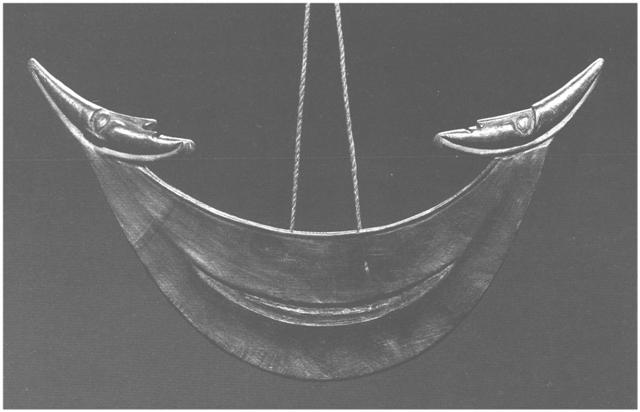 |
|
hetu koro iti no.i toona
vae.he otea.he ea a Teke |
It grew light [he
otea] and Teke went out [he ea a Teke ki haho]
in the twilight to urinate [i te po ana mimi]. |
|
ki haho.i te po ana mimi.he
ki hokoou mai |
|
... There was no water in the
village. The lakes and rivers were dry. Raven and Crow,
two young girls who were having their first menstrual
courses, were told to go and draw water from the ocean.
Finding the journey too long, Raven decided just to
urinate into her basket-bucket. She decieved no one and
was severly scolded. Crow returned much later but with
drinking water. As a punishment, Raven was condemned
never to find water in the summer; only in winter would
she find something to drink. For that reason the Raven
never drinks during the hot months; she speaks with a
raucous voice because of her dry throat ...
... On the fifteenth day of the month of October (tangaroa
uri), Nonoma left the house during the
night to urinate outside ...
(E:75 → 59 + 16)
Puku.
1. To feel an urge to defecate or to urinate, etc.:
ku-puku-á te mimi: to need to urinate. 2. Rock,
boulder: puku ma'ea; puku oone, hillock,
earth mound. Vanaga. |
Yam roots was the 4th item enumerated by king Matua A Taana:
|
1 |
60 |
Banana shoots |
te huri maika |
|
2 |
61 |
Taro seedlings |
te uru taro |
|
3 |
62 |
Sections of
Sugarcane |
tepupura toa |
|
4 |
63 |
Yam roots |
te uhi |
|
5 |
64 |
Sweet potatoes |
te rau kumara |
|
6 |
65 |
Hauhau trees |
te hauhau |
|
7 |
66 |
Paper Mulberry
trees |
te mahute |
|
8 |
67 |
Sandalwood trees |
te naunau |
|
9 |
68 |
Toromiro trees |
te toromiro |
|
10 |
69 |
Ferns |
te riku |
|
11 |
70 |
Rushes |
te ngaatu |
|
12 |
71 |
Yellow roots |
te pua |
|
13 |
72 |
Tavari plants |
te tavari |
|
14 |
73 |
Moss |
te para |
|
15 |
74 |
Nga Oho plants |
te ngaoho |
|
16 |
75 |
Grass |
te mauku tokoa |
|









